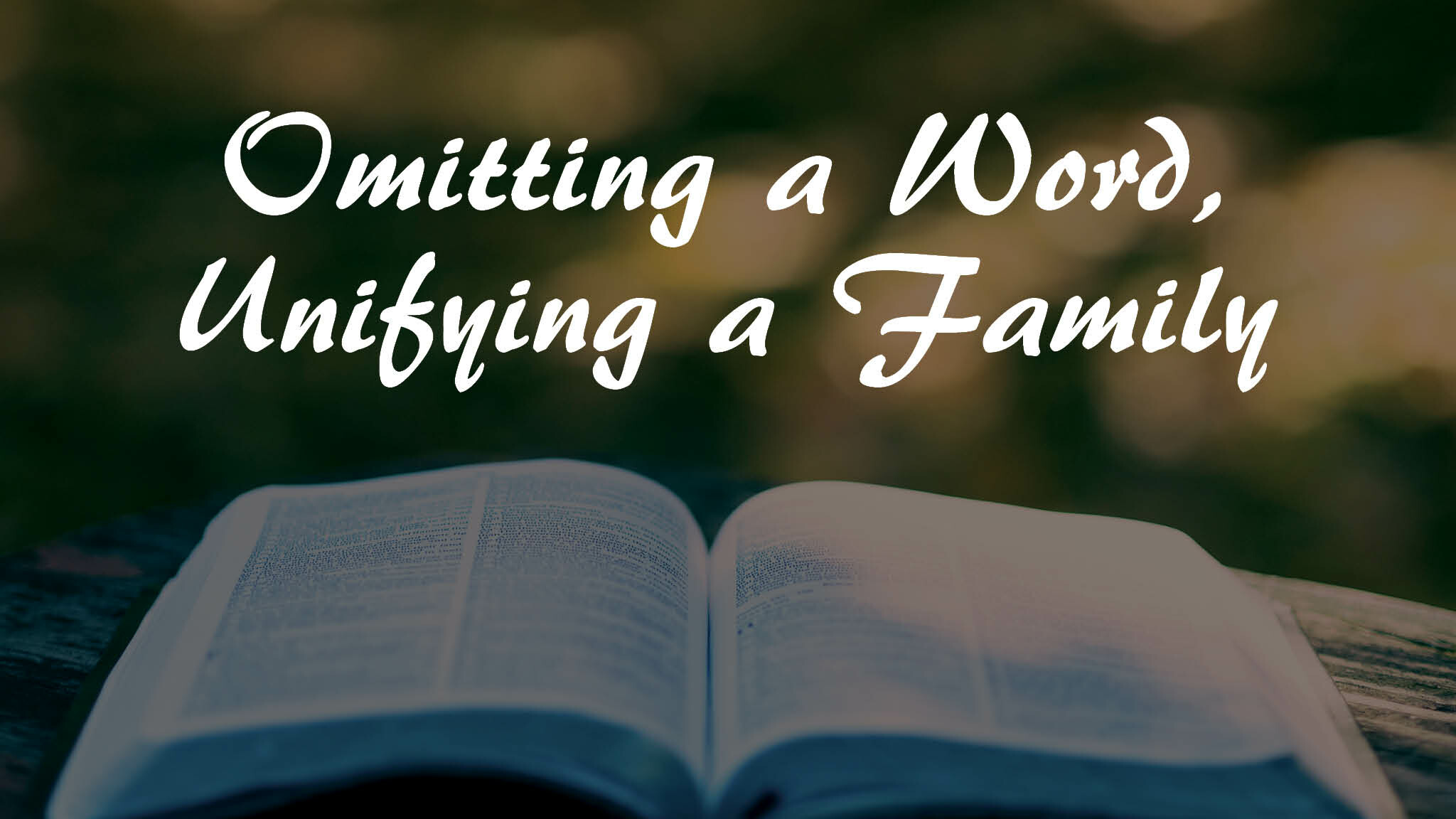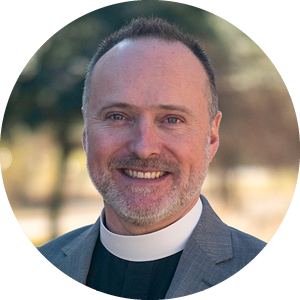
Friends,
Each Sunday you are participating in the intentional healing of a family division that is more than 1,000 years old!
Let me explain. For the last three weeks, in the third paragraph of the Nicene Creed we confess that the Holy Spirit “proceeds from the Father” but we no longer say “and the Son.” You were probably expecting something bigger than what may seem like a small editorial issue? Well, ask a Christian from the East (think Greek, Russian, Syrian, many of whom attend Christ Church) and you will realize quickly how huge this omission is. This small phrase—actually just one word in the Latin: filioque—was one of the primary reasons for the first worldwide Church schism: the East-West Schism of the Eleventh Century. My Facebook account has lit up over these past few weeks with parishioners from Eastern backgrounds saying “thank-you!”
Without getting caught in the weeds on this issue, let me say four short things about an issue that could demand four volumes.
- First, omitting the filioque does not change our theology of the Trinity. Though some would disagree with me, I am sticking to my guns on this one, and for a fuller discussion of this issue I commend the U.S. Conference of Catholic Bishop’s statement on this. To keep it simple, I follow the example of Maximus the Confessor (c. 580 – 13 August 662), who argued that much of this is an issue of language and emphasis rather than differences in doctrine.
- Second, omitting the filioque is a return the original form of the Creed. This ancient form was composed during two Ecumenical Councils of the Church (Nicea, 325AD and Constantinople, 381AD). Ecumenical means universal and worldwide, with all the world’s Churches represented. However, the West (i.e. Rome) began adding the filioque without the calling of an Ecumenical Council. The East was left out of the decision. It really was a breakdown of family communication that has fermented over more than a millennium.
- Third, omitting the filioque is to follow the direction of the Worldwide Anglican Communion on this issue. As early as 1888, the bishops of the Anglican Communion have been recommending that we use the original version in worship as a means to bridge a deep divide. This was formally passed at the Lambeth Conferences of 1978 and 1988. And in 2013 our College of Bishops of the Anglican Church in North America (ACNA) agreed unanimously that the original version of the Nicene Creed without the filioque would be the normative use for our churches. They allowed for churches to retain the use of the Western version if they desired—but when I read “normative,” I read “directive.” I may be so bold as to say that all ACNA churches should be doing this, unless they can provide a really compelling reason not to.
- Finally, omitting the filioque is to model our devotion to the Fellowship—one of our key devotions from Acts 2:42: “And they devoted themselves to the Apostles’ Teaching, and the Fellowship, and the Breaking of the Bread, and the Prayers.” We need to model unity within the Church, perhaps more than ever before. The world is watching, and though there are many legitimate divisions that will arise over doctrine, let us never show the world division over historical missteps.
Jesus’ last prayer to his Father before his Passion was that his followers would be unified for the sake of their witness. “I do not ask for these only, but also for those who will believe in me through their word, that they may all be one, just as you, Father, are in me, and I in you, that they also may be in us, so that the world may believe that you have sent me” (John 17:20-21 ESV).
So, whether or not you are interested theologically or historically in the finer points of this issue, let me invite you each Sunday to realize that you are part of a reunification of the Church of Jesus Christ. You are participating in a tiny, yet profound, liturgical act that anticipates Jesus’ prayer coming true in our day. To the Glory of the Father and of the Son and of the Holy Spirit.
